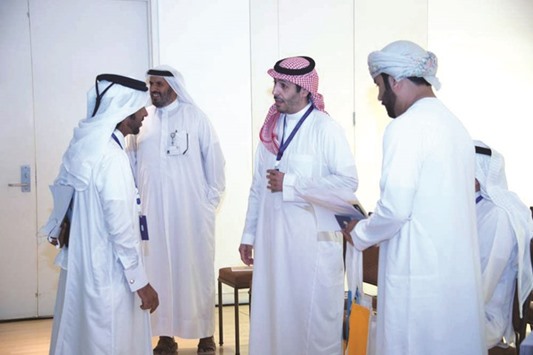Qatar Museums, under the patronage of its chairperson HE Sheikha Al Mayassa bint Hamad bin Khalifa al-Thani, launched yesterday a training programme for archaeologists from the GCC countries on the techniques of making Stone Age tools and weapons.
Running until Thursday at the Museum of Islamic Art (MIA), the exercise aims to educate participants on the history of human settlement in the Gulf, dating back to the prehistoric period, by exploring the different uses of weapons and their importance in both self-defence and for collecting food.
By exploring the history of weapons and their development over thousands of years, the participants will gain useful insights into the history of people in the Gulf, as well as a deeper understanding of the history of the region. The key resource persons are Faisal Abdullah al-Nuaimi and Khalid al-Sindi.
Ali Jassim al-Kubaisi, chief archaeology officer at Qatar Museums, said the programme is part of the organisation’s commitment to implementing the recommendations from the 16th Meeting of Archaeology and Museums Undersecretaries.
“The programme will allow participants to learn about early human settlement in the Gulf region through a number of workshops and field trips which investigate the history of traditional weapons and their development over time.”
The theoretical side of the programme will focus on the different weapons and tools used in the Gulf in the prehistoric period, including their uses, how to identify and categorise them, and how to identify the raw materials used to make them.
The practical side will include training on making the different types of weapons and tools, soft and hard forging, trimming through forging or pressing, and how to make the most important tools, including axes, arrowheads, spears and bows.
The programme will conclude with a field trip to a prehistoric archaeological site in Qatar, which will allow the participants to see flints and different tools across the site, as well as understand how the pieces are collected and investigated.

Some of the participants interacting with Faisal Abdullah al-Nuaimi (left) at the workshop.
